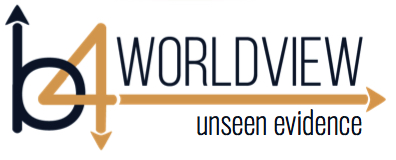
Key Thought for this session:
“Without a compass, the journey is futile.”
So, basically, you are at a fork in the road. There really are only two choices you have in finding truth ... or “true north.”
So, back to that key fork in the road: as you choose to adopt a critical core assumption that will form your worldview of: “How do I find TRUE NORTH?” Either you must believe that you have sufficient vision to perfectly see the qualities of an object, or the originator of the object must reveal the qualities of the object to you.
Ultimately, finding truth is actually a question of who or what you are trusting. And EITHER way it really is a matter of FAITH. Are you trusting your analysis of your observations of an object– especially if it includes the power of a super computer and a sea of data, ...or are you trusting what you receive from the originator of the object?
Both paths collect eido knowledge, but the question is how are you going to interpret that eido knowledge? Either you will ignore the insights from the originator and do the best you can to understand the eido knowledge you collect even though this is undermined by all the biases you have, or you will trust the originator to help you reach unbiased valid conclusions from the eido knowledge you have collected.
In other words, what do you do with the originator’s disclosures? Do you discount them, or do you rely on them?
Have you ever had this experience? You are riding in your car with a friend when your engine starts making clunking noises. You don’t know what it means, and no warning lights are on your dashboard. You consider checking a Service Manual or calling a mechanic from your dealership, but your friend says that he once had a problem like this that turned out to be bad gas. Just keep driving and when you fill up again, the problem will go away. The car has never had problems before, so you decide to trust your friend’s advice and keep driving. Later, it turns out that your car was out of oil and it threw a rod and destroyed the engine. By relying on your own observations and the advice of your friend, you ended up with three weeks of no wheels and a $5000 cost while a garage replaced your engine. This is an example of what can happen when you make biased decisions with insufficient data. It may seem reasonable at the moment, but the consequences can be extremely bad.